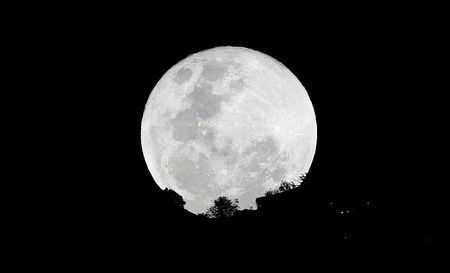
Breaking News
 FULL REPLAY: President Trump Delivers an Address to the Nation - 12/17/25
FULL REPLAY: President Trump Delivers an Address to the Nation - 12/17/25
 MELANIA, the film, exclusively in theaters worldwide on January 30th, 2026.
MELANIA, the film, exclusively in theaters worldwide on January 30th, 2026.
Top Tech News
 This tiny dev board is packed with features for ambitious makers
This tiny dev board is packed with features for ambitious makers
 Scientists Discover Gel to Regrow Tooth Enamel
Scientists Discover Gel to Regrow Tooth Enamel
 Vitamin C and Dandelion Root Killing Cancer Cells -- as Former CDC Director Calls for COVID-19...
Vitamin C and Dandelion Root Killing Cancer Cells -- as Former CDC Director Calls for COVID-19...
 Galactic Brain: US firm plans space-based data centers, power grid to challenge China
Galactic Brain: US firm plans space-based data centers, power grid to challenge China
 A microbial cleanup for glyphosate just earned a patent. Here's why that matters
A microbial cleanup for glyphosate just earned a patent. Here's why that matters
 Japan Breaks Internet Speed Record with 5 Million Times Faster Data Transfer
Japan Breaks Internet Speed Record with 5 Million Times Faster Data Transfer
 Advanced Propulsion Resources Part 1 of 2
Advanced Propulsion Resources Part 1 of 2
 PulsarFusion a forward-thinking UK aerospace company, is pushing the boundaries of space travel...
PulsarFusion a forward-thinking UK aerospace company, is pushing the boundaries of space travel...
 Dinky little laser box throws big-screen entertainment from inches away
Dinky little laser box throws big-screen entertainment from inches away
 'World's first' sodium-ion flashlight shines bright even at -40 ºF
'World's first' sodium-ion flashlight shines bright even at -40 ºF
Moon to get first mobile phone network

Vodafone Germany, network equipment maker Nokia and carmaker Audi said on Tuesday they were working together to support the mission, 50 years after the first NASA astronauts walked on the moon.
Vodafone said it had appointed Nokia as its technology partner to develop a space-grade network which would be a small piece of hardware weighing less than a bag of sugar.
The companies are working with Berlin-based company PTScientists on the project, with a launch scheduled in 2019 from Cape Canaveral on a SpaceX Falcon 9 rocket, Vodafone said.
"This project involves a radically innovative approach to the development of mobile network infrastructure," Vodafone Germany Chief Executive Hannes Ametsreiter said.
One executive involved said the decision to build a 4G network rather a state-of-the-art 5G network was taken because the next generation networks remain in the testing and trial stage and are not stable enough to ensure they would work from the lunar surface.

 The Prime Directive is Evil
The Prime Directive is Evil
 Don't Worry About Bitcoin
Don't Worry About Bitcoin

